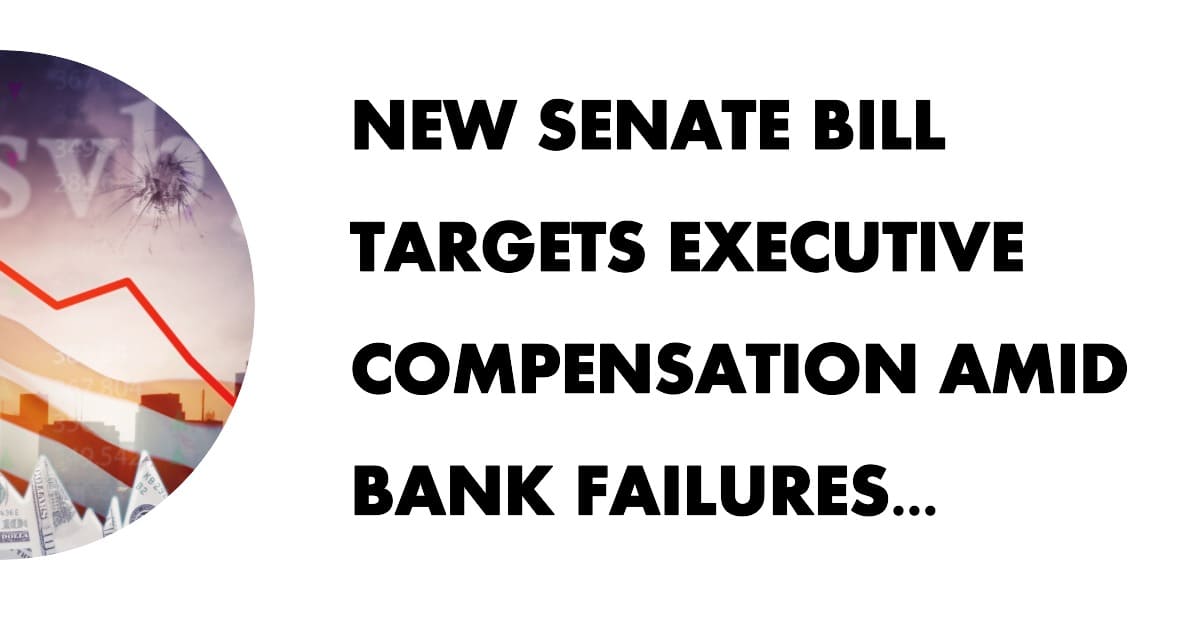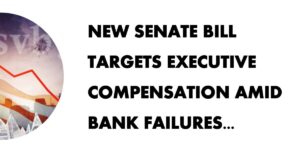The Senate Banking Committee recently achieved a significant milestone in response to this year's banking turmoil by approving a bipartisan bill in a 21-2 vote. The legislation, negotiated by Senate Banking Chair Sherrod Brown, Senator Tim Scott, and Senator Elizabeth Warren, aims to increase penalties for failed lenders' executives, enhance oversight of the Federal Reserve, and restrict megabank takeovers.

A Reasonable Compromise
Despite recent tensions between Senator Brown and Senator Warren, the final bill represents a “reasonable compromise” according to Warren. The legislation received widespread support from progressives, conservatives, and moderates on the committee, making it the most viable option for revamping the banking system. Notably, only two Republicans, Senators Thom Tillis and Bill Hagerty, voted against the bill.
Senator Brown emphasized the bill's significance for consumers, the banking system, honest bankers, and the entire country. The compromise achieved by Brown and Scott focuses on executive mismanagement and regulatory supervision failures, aligning with President Joe Biden's call for strengthened executive accountability.
Gaining Traction in the House
While House Republicans have not pursued similar legislation, the bill's provisions related to oversight of the Federal Reserve have caught their attention. Representative Andy Barr introduced a similar bill in the House, and House Financial Services Chair Patrick McHenry has expressed a willingness to review the Senate bill. With the level of support garnered in the Senate, it becomes challenging for House Republicans to ignore the need for reform.
Empowering Regulators and Holding Executives Accountable
The bill negotiated by Senators Scott and Brown aims to empower regulators to hold executives of failed banks accountable. It introduces measures to claw back compensation, increase civil penalties, and enforce bans on executives working in the industry. The compromise bill builds upon Senator Warren's proposal, which had garnered substantial support from the Banking Committee. Republican Senator J.D. Vance played a crucial role in building GOP support for Warren's proposal.
The compromise bill features a less-stringent clawback approach than Warren's original plan, covering a period of two years rather than three. Additionally, the clawback is an option for regulators rather than a requirement. The bill's scope expanded further with bipartisan amendments that broaden the types of compensation subject to clawbacks, require public reporting on bank supervision practices, and establish new hurdles for the acquisition of failed banks by large institutions.
Industry Concerns and Future Challenges
The banking industry's response to the bill remains uncertain. Major trade associations have refrained from taking a public position, but the Bank Policy Institute, representing large U.S. lenders, expressed concerns about potential actions against executives who were not significantly involved in their banks' failures. The institute also highlighted potential challenges in talent recruitment for banks.
Despite industry concerns, Senator Brown assured that most bankers he had spoken to acknowledged the need for accountability in light of recent banking scandals. He emphasized that the bill's purpose is to hold executives accountable for their greed and incompetence, rather than tarnishing the entire banking industry.
Senator Tillis, one of the two Republicans who voted against the bill, voiced his concerns about the legislation being too expansive and potentially stifling innovation. As the bill progresses through the legislative process, it is likely to undergo further refinement and face additional challenges.
Sources:
- https://www.politico.com/news/2023/06/21/senate-advances-post-svb-bank-crackdown-00102855
- https://www.cbsnews.com/news/senate-bill-bank-ceos-svb-collapse/

